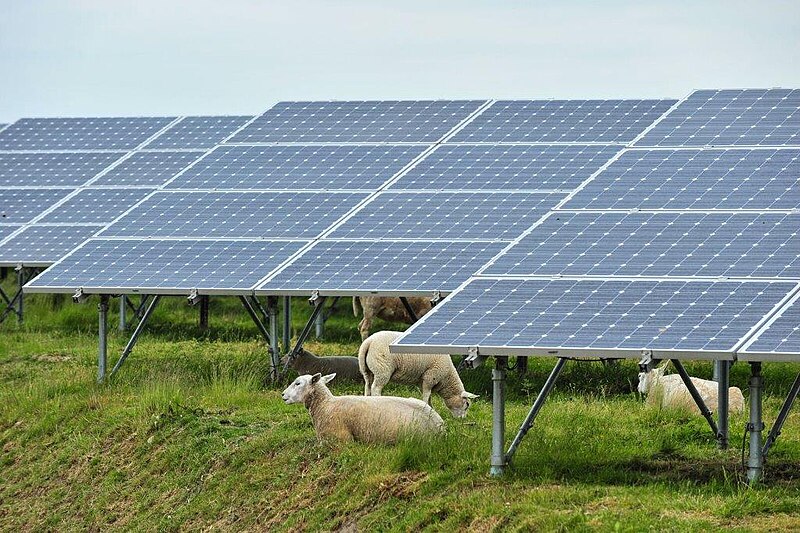As renewable energy soars worldwide, solar and wind have overtaken fossil fuels, generating 30 percent of electricity in the European Union during the first half of 2024, according to a new report from energy think tank Ember.
By Cristen Hemingway Jaynes
During the first half of this year, the electricity generation from oil, gas and coal was down 17 percent, in comparison with the same period in 2023, Ember said, as The Guardian reported.
Ember analyst Chris Rosslowe pointed out that the increase in wind and solar production was narrowing fossil fuels’ role in electricity generation.
“We are witnessing a historic shift in the power sector, and it is happening rapidly,” Rosslowe said.
The report, Wind and solar overtake EU fossil fuels in the first half of 2024, found that emissions from the sector have fallen by one-third since the first six months of 2022 due to the continuing shift away from fossil fuels.
Power plants in the European Union burned 14 percent less gas and 24 percent less coal from the first six months of 2023 to the first six months of this year, the report found, even though there was a small increase in demand for electricity following the war in Ukraine and the pandemic.
“Wind and solar generated 30% of the EU’s electricity in the first half of the year, compared to 27% from fossil fuels. Together, wind and solar surpassed fossil generation in thirteen Member States, with four of these hitting the milestone for the first time in 2024 over a January-June period: Germany, Belgium, Hungary and the Netherlands,” the report said.
If renewables like hydropower are included in the calculation, the total clean energy contribution to the EU’s power mix would be 50 percent, reported The Guardian.
“[S]ustaining the EU’s electricity transition at this pace will require dedicated policy focus to ease barriers to wind and solar integration. Adequate support on grid connections and other enablers of swift development will be needed to ensure that economic, security and climate benefits are delivered across Europe,” the report said.
While Europe has been one of the largest polluters historically, it also has some of the most ambitious goals for creating a green energy economy.
“If member states can keep momentum up on wind and solar deployment then freedom from fossil power reliance will truly start to come into view,” Rosslowe said, as The Guardian reported.
High inflation and public and political pushback has caused the wind industry to struggle, while solar has surged.
A record 16.2 gigawatts of new wind capacity was installed in the EU in 2023, Wind Power Europe said, roughly half of the necessary amount to meet its 2030 climate goals.
“Strong winds were prevalent during the first six months of 2024 in northern Europe, where most wind energy is generated,” said Andrea Hahmann, a Denmark Technical University scientist, as reported by The Guardian. “The ‘crossing of the lines’ demonstrates that the EU’s electricity transition is possible, and we should not give in to pessimism. The renewable energy targets that must be met are substantial but achievable with the proper policy measures.”
Cristen is a writer of fiction and nonfiction. She holds a JD and an Ocean & Coastal Law Certificate from University of Oregon School of Law and an MA in Creative Writing from Birkbeck, University of London. She is the author of the short story collection The Smallest of Entryways, as well as the travel biography, Ernest’s Way: An International Journey Through Hemingway’s Life.






